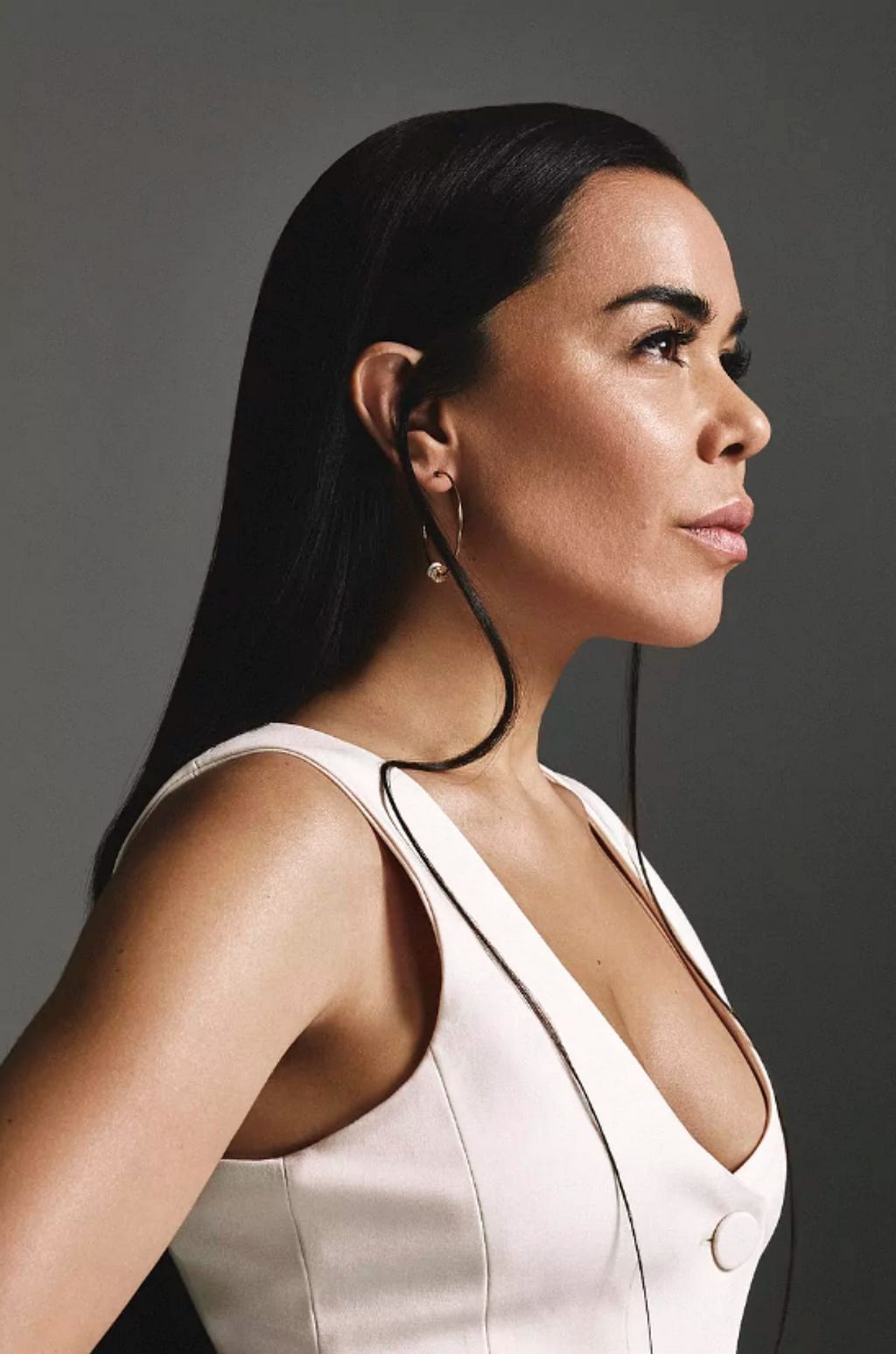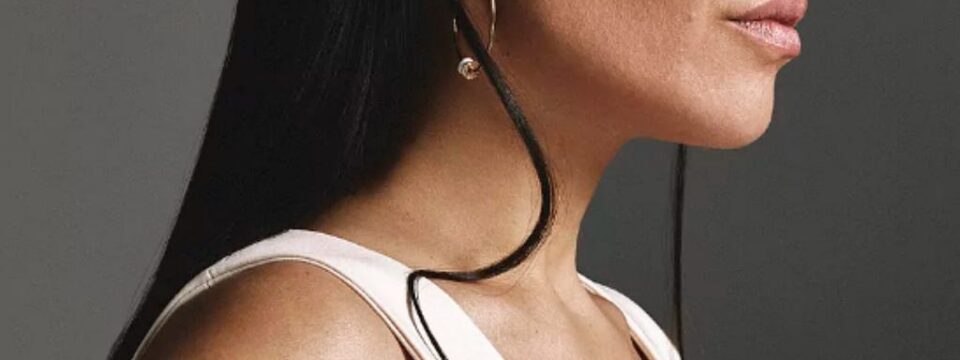Filmmakers Making A Social Impact: Why & How Filmmaker Beatriz Luengo Is Helping To Change Our World

There is really only one lesson that I wished someone told me. When we composed the song, I wish someone warned me about the potential for bad consequences. I couldn’t imagine that I’d go from having a normal life to driving in a car to Walgreens with security weeks from giving birth at 8 months pregnant. From the incredible exercise of making a song, we unexpectedly became the number one enemy of the Cuban government.
As a part of our series about “Filmmakers Making A Social Impact” I had the pleasure of interviewing Beatriz Luengo.
Beatriz “Bea” Luengo makes her debut as a director with the documentary Patria y Vida: The Power of Music. She is an actress and 2 time Grammy Award winner as a musician. She has been recognized by the European Union for the “European Border Breakers Awards’’ due to her success in Europe, especially in France. Involved with various social causes, she is one of the most recognized voices in Spain on the empowerment of women. She is also a writer. Her first book “El despertar de las Musas” (“Badass Muses”) has become a bestseller in Europe and has been translated into several languages. She writes songs for artists such as Christina Aguilera, Camila Cabello, Ricky Martin, Daddy Yankee, Ozuna and Ruben Blades, among others. As one of the creators of the song “Patria y Vida,’’ she decided to film the historical circumstances around this movement knowing that it was an impressive story to tell. The lyrics of the song became part of the Congressional Records of the United States to ensure that future generations will always remember how much music can do for freedom. She turned this story into the documentary Patria y Vida: The Power of Music, which has been screened at the Los Angeles Latino International Film Festival, and will be involved in a “Music and Rights” panel at this year’s Tribeca Film Festival.
Thank you so much for doing this interview with us! Before we dive in, our readers would love to get to know you a bit. Can you share your “backstory” that brought you to this career?
I began my career in a circus when I was 9 years old. Art has always been part of my life. My grandmother was a flamenco singer so for me, it was natural to see art around me all the time. I always remembered to write my thoughts and feelings in a notebook and create songs about them. This is the way I became a storyteller.
Who are some of the most interesting people you have interacted with? What was that like? Do you have any stories?
My grandmother is the most interesting person because she showed me my power as an artist. She is my reference. She is a woman who never learned to read, but one of the most intelligent people that I have ever known. She gifted me a lot of books and would always tell me, “Mi Niña, the more you read, the more you could be.” She showed me how great books are and now I love books!
Which people in history inspire you the most? Why?
The people that have inspired me the most are artists that use their voices for social change, such as Billie Holiday, Celia Cruz, Sam Cooke, Bob Marley, Bob Dylan and Gloria Estefan. These are artists who gave voices to the unvoiced.
Let’s now shift to the main focus of our interview, how are you using your success to bring goodness to the world? Can you share with us the meaningful or exciting social impact causes you are working on right now?
I have 2 causes that I’m fighting for. The first one is the Cuban people because it is very sad what is happening on the island. The Cuban Regime is imprisoning artists and protesters who just want freedom. I cannot understand something like this happening only 90 miles off the Coast of Florida. My documentary, Patria y Vida: The Power of Music, focuses on the rapper Maykel Osorbo, who is currently imprisoned just for being part of the protest anthem, “Patria y Vida,” while, at the same time, receiving two Grammy Awards for the song.
Many of us have ideas, dreams, and passions, but never manifest them. But you did. Was there an “Aha Moment” that made you decide that you were actually going to step up and take action for this cause? What was that final trigger?
I have always empathized with struggling people, as I studied social science in University. I’ve always seen the possibility to be a social transformer and empower people. Rosa Parks was a great example. She made a huge impact for a lot of people just by being brave.
My “Aha Moment” was definitely writing the song “Patria y Vida” with my fellow songwriters. We were just composers with a pencil, paper and a computer. But we changed the reality of millions of people with just one song. This is my message in the documentary: “Go ahead and fight injustice. The future is in your hands.” You can use your social network, music, art and everything around you to fight for your rights.
Can you tell us a story about a particular individual who was impacted or helped by your cause?
I think that my co-songwriters and I are the ones who have helped the music industry to understand that we have to create our own algorithm. Now, algorithms rule the world. An algorithm is a “mathematical way” to understand what people are consuming at the moment. For example, 90% of Latin Music is labeled as “fiesta” or party music just because the algorithm labels it that way. However, Latin people are more than a number and a label. We, as composers, put that notion aside and created a song about human rights from an independent label, without any platform’s support. Our song made an impact on the world, with more that 300 million uses of the hashtag #PatriayVida in just a few months. Because of its popularity, we also created a remix of the song. “Patria y Vida’’ started a revolution in the whole country of Cuba.
Now, music platforms have playlists that highlight protest anthems and songs about human rights because of our song. It has been incredible to see our story change the music landscape. I think this is an important story, not only for Latin music, but for art in general. If we don’t show that we’re not just labels and numbers, the algorithm is going to be the sole creator of films, songs and all other kinds of art within the next 10 years.
We are humans and we have a world to leave to our kids. Art has to be a tool for fighting injustice. Art is the way to leave our story for future generations.So let’s create our own algorithm to change the world and help other people.
Are there three things that individuals, society or the government can do to support you in this effort?
People can help us by simply telling our incredible story to others. Just last week, Edward James Olmos watched our film in the TLC Theater in Hollywood and, by the end of the screening, he said, “Change is in our hands. All we have to do is go outside this theater and tell people that they have to see this film.”
So spreading the word is the best way to help us because more people need to know that one of the rappers on the song, Maykel Osorbo, has been sentenced to 9 years in a maximum security prison just for singing a song that empowered the people in Cuba to hit the streets and ask for freedom without weapons, but just by saying “Patria y Vida.”

What are your “5 things I wish someone told me when I first started” and why?
There is really only one lesson that I wished someone told me. When we composed the song, I wish someone warned me about the potential for bad consequences. I couldn’t imagine that I’d go from having a normal life to driving in a car to Walgreens with security weeks from giving birth at 8 months pregnant. From the incredible exercise of making a song, we unexpectedly became the number one enemy of the Cuban government.
If you could tell other young people one thing about why they should consider making a positive impact on our environment or society, like you, what would you tell them?
I would tell other young people to just do it. Everybody has the power to be a social transformer!
We are very blessed that many other Social Impact Heroes read this column. Is there a person in the world, or in the US, whom you would like to collaborate with, and why? He or she might see this!
I would like to show this documentary to Jay-Z. This story started one day because some Cuban artists, who were inspired by American Hip-Hop, wanted to change their reality and help their country. Maykel, the rapper who is currently in prison, has tattoos of Tupac lyrics all over his body and he is a huge fan of Jay-Z, as are all of us. Maykel is a great guy, a sweet dad and a very talented artist using his voice for his people. His prison sentence doesn’t make sense. My dream is for Jay-Z to know this story and tell his fans the following: “Patria y Vida and Free Maykel Osorbo!”
What is happening to Maykel right now is racial discrimination. This is the reason I feel that American Rappers are going to listen to us and help their Cuban brother Maykel Osorbo. I pray for that.
Can you please give us your favorite “Life Lesson Quote”? Can you share how that was relevant to you in your life?
My favorite “Life Lesson Quote” is from Frida Kahlo: “Pies para que os quiero si tengo alas para volar” (Direct Translation: Feet, why do I want you if I have wings to fly?”). This means that nobody can stop you which has inspired me in everything I do.
How can our readers follow you online?
Instagram: @beatizluengo
This was great, thank you so much for sharing your story and doing this with us. We wish you continued success!
Filmmakers Making A Social Impact: Why & How Filmmaker Beatriz Luengo Is Helping To Change Our… was originally published in Authority Magazine on Medium, where people are continuing the conversation by highlighting and responding to this story.
